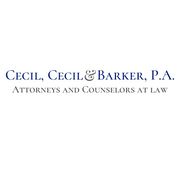
If you are considering filing for Chapter 7 bankruptcy, it’s important to get the facts straight. This type of bankruptcy is focused on liquidation, meaning your assets can potentially be seized to pay off creditors. In exchange, much of the debt is subsequently discharged.
What You Should Know About Chapter 7 Bankruptcy
1. A Trustee Will Handle Your Case
When you file for Chapter 7 bankruptcy with the court, it will appoint a trustee to the case. The trustee will review your petition for bankruptcy and verify essential information, such as the amount of income you claim. They will take non-protected assets and liquidate them as possible, using the money to pay off debts. Examples of non-exempt assets include a property that isn’t your primary home, newer cars, instruments, artwork, clothing, and jewelry
2. Debts Can Be Discharged Within Months
Chapter 7 filings can move very quickly, with debts often being discharged within a few months. For 60 days following your filing, creditors may object to the discharging of certain debts for legal reasons. Within this time period, the trustee can also move to dismiss the case if they deem it doesn’t meet the criteria. Once these 60 days are over, you usually receive the discharge.
3. Not All Debts Can Be Discharged
 Bankruptcy is a great way to regain your financial footing, but it’s not a magic solution for all kinds of debt. If you owe back payments of child support, alimony, or student loans, you still have to pay these. Dischargeable debts include credit card, collection agency, medical bills, dishonored checks, and business debts, among others.
Bankruptcy is a great way to regain your financial footing, but it’s not a magic solution for all kinds of debt. If you owe back payments of child support, alimony, or student loans, you still have to pay these. Dischargeable debts include credit card, collection agency, medical bills, dishonored checks, and business debts, among others.
4. It Is Possible to Regain Credit
A Chapter 7 filing will usually show up on a credit report for ten years. You can start improving the credit score long before that, however. By getting a secured credit card and making regular payments, you can build up the score again.
5. You Should Get an Attorney
The most common types of personal bankruptcy are Chapter 7 and Chapter 13. Knowing which type is best suited to your needs requires expert input. For instance, you may not qualify for Chapter 7 if your income is too high. Plus, one error in the paperwork can lead to setbacks and, if you’re unlucky, charges of fraud. Trust a lawyer to handle the filing.
If you are considering filing for Chapter 7 bankruptcy in High Point, NC, Cecil & Cecil PA can help. This law firm does not charge for an initial consultation on bankruptcy topics. Their attorneys have nearly 40 years of combined experience. You can get to know more about their experience and credentials online. For a consultation to speak with a lawyer directly, call (336) 883-8383.
About the Business
Have a question? Ask the experts!
Send your question

